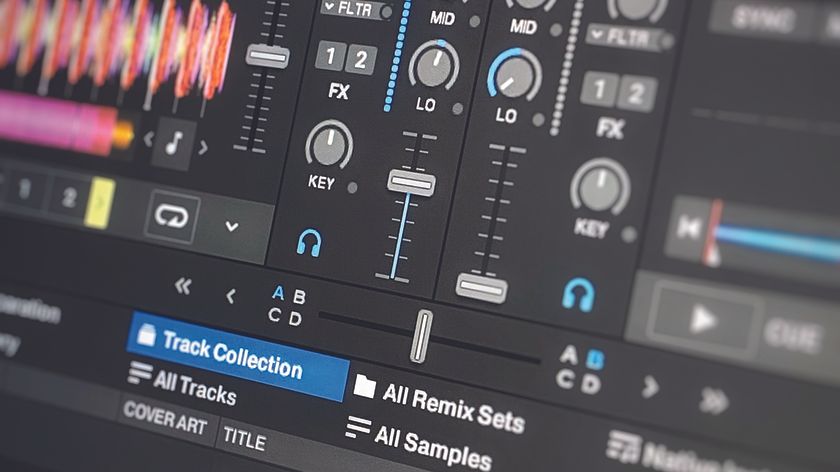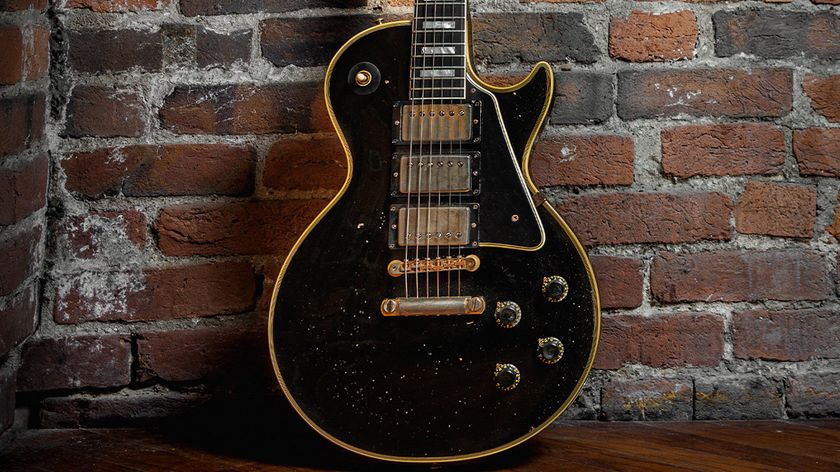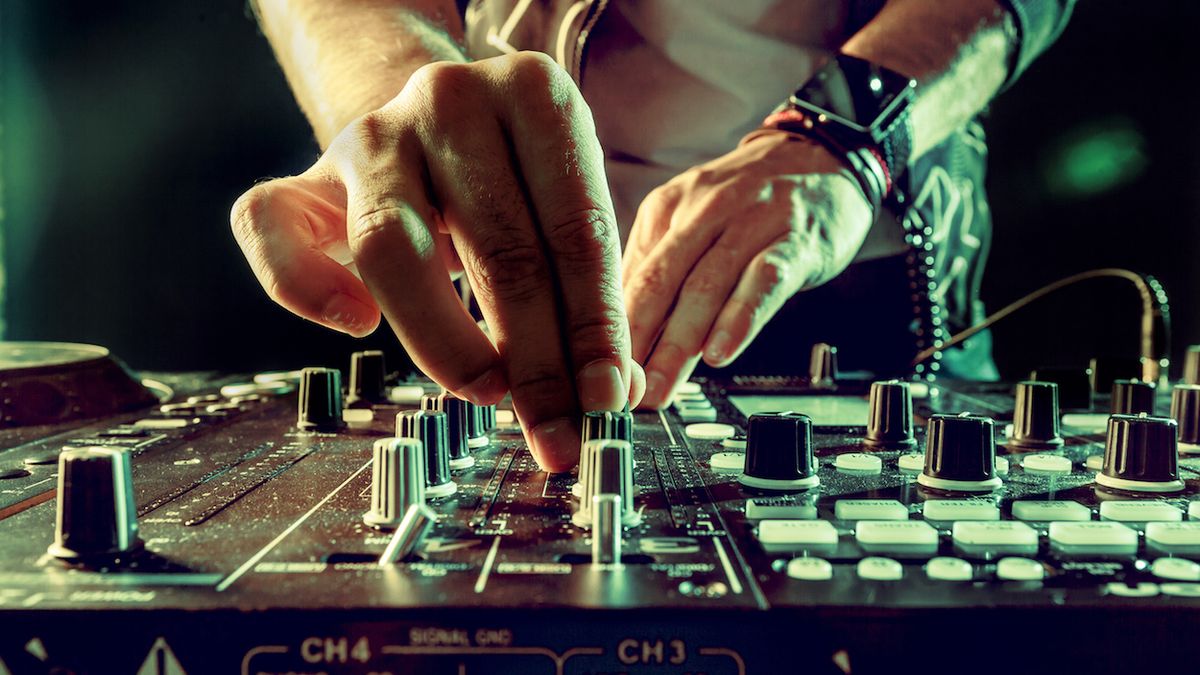
At the risk of pointing out the blindingly obvious, mixers are a hugely important part of any DJ setup, and in this guide, we’re going to help you find the best DJ mixers at a variety of price points.
Mixers are, quite literally, the centre-piece of any DJ booth – the thing that allows tracks to be mixed and manipulated. Essentially, it’s the mixer that separates a DJ setup from a home music system.
Since they’re so important, it’s worth really considering what you need and what you can get for your budget. Here, we’ll be covering everything from beginner DJ equipment to the best mixer for battle DJs.
What is the best DJ mixer?
MusicRadar's got your back
Crowning a definitive ‘best DJ mixer’ is a tricky job. Much of what makes a mixer right or wrong comes down to personal preference – such as the sound of EQs, filters, and effects – and the needs of the user’s particular setup. That said though, Allen & Heath’s newly updated Xone:96 is a truly classy, high-end mixer, and while it’s still relatively early days, it looks built for years of flexibility and durability.
On the other hand, Pioneer DJ’s Nexus range verges on being ‘industry standard’, particularly in European clubs, and you can’t go far wrong with their flagship 900NXS2. If creative performance effects are a big draw, then this is certainly the way to go.
For something a little different, Rane’s MP2015 rotary mixer is pure class. This design of DJ gear won’t suit everyone – it’s best suited to classic house and techno heads – but many pro DJs swear by rotaries, and for good reason.
Best DJ mixer: buying advice
Ins and outs
The most basic form of DJ mixer will offer up two input channels that can be blended using level controls and, in most cases, a crossfader. The resulting audio will then be fed to the main output, as well as an assignable ‘cue’ headphone output, which allows users to hear a track without it being mixed into the main mix. Many mixers offer more than this though; four or more input channels are common on higher-end mixers, as are mic inputs, booth outputs, and effects loops.
But how many ins and outs do you actually need when choosing the best DJ mixer for you? Broadly speaking, more I/O means more flexibility and more future-proofing. If you’re a beginner DJ you may find that two channels are enough for now, but you may reach a point in the future where you’d like to add a third or fourth deck in order to get more creative. Those looking to play weddings and commercial functions will likely want mic input. DJs likely to play larger clubs, on the other hand, will likely need a booth output.
However, extra ins and outs don’t come for free, and if you’re confident you won’t want to do more than mix records from two turntables or CDJs then a simple 2-channel mixer may well do the job. This is particularly the case for scratch DJs and turntablists, who tend to prefer the ‘battle mixer’ format. These tend to stick to two channels but pile on additional performance features and put extra emphasis on quality faders and crossfaders.
Effects
The majority of DJ mixers at least have some form of channel EQ and, in many cases, a low/high-pass filter. Higher-end mixers generally offer additional effects too, such as rhythmic delays or gates or things like phasers, reverbs or even one-shot FX. While none of these are strictly necessary to DJ with, the more tools you have at your disposal the more creative you can be. For additional customisation, an external effect loop lets DJs add pedals or desktop effects into their setup.
Digital compatibility
Despite electronic music being, in many ways, at the forefront of technological development, DJs tend to be a little set in their ways. As such, many tend to shun the whole realm of ‘digital’ DJing in favour of a traditional ‘two decks and a mixer’ setup.
There’s no ignoring the fact that the march of progress is heading towards the digital realm though, so having some kind of compatibility isn’t a bad idea. In the mixer market, digital compatibility ranges from USB ports allowing streaming of audio to/from a computer to full controller integration with DJ applications such as Serato, Traktor and rekordbox.
Many mixers are ‘DVS-ready’ too, meaning they’re set up to use one of the major digital vinyl systems integrated into the above software tools. These allow users to control software decks using ‘real’ hardware, using a system of timecode vinyl or CDs. This can be a great bridge for those that want a classic hands-on feel but also the convenience of digital DJing.
The best DJ mixers available right now
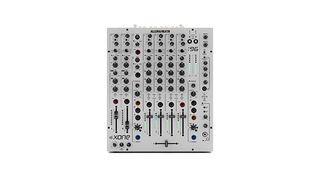
Allen & Heath Xone:96
Specifications
Reasons to buy
Released in the early-noughties, A&H’s Xone:92 mixer is an all-time classic, beloved by many pro house and techno DJs. After years without an update, the company finally unveiled this follow-up in 2018. Fortunately, the design here refines the design of its predecessor, rather than drastically overhauling anything.
Like the original, this is built like a tank and offers plenty of flexibility, with great EQs and filters. Where the 96 updates the design is in the addition of an onboard audio interface, along with expanded send/return capabilities and extra control over the booth output.
It’s certainly not a cheap option, but this is a real top-of-the-line DJ mixer that is likely to hold up well to decades of regular use.
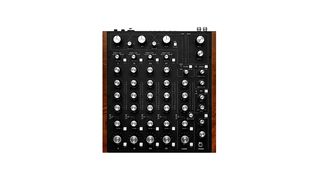
Rane MP2015
Specifications
Reasons to buy
Rotary mixers aren’t for everyone, but many DJs swear by them. The use of rotaries rather than faders to blend tracks encourages a certain style of, generally slower, mixing. Because of this, tools like these tend to be beloved by deeper house and techno DJs, and certainly aren’t the obvious choice for scratching.
Rotary mixers also tend to be synonymous with high-quality audio, and Rane’s latest certainly delivers on that front. Isolators, adjustable EQs and filters give you a ton of control over the frequency of each track too, making this ideal for long, smooth mixes.
For all its retro-cool though, there are some modern touches here too, namely a built-in audio interface for use with a computer. The MP2015 is Serato Scratch compatible too.
This design of mixer might not be for everyone, but for those seeking quality and class, this is one of the best DJ mixers around.
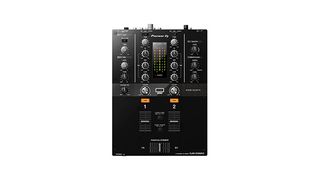
Pioneer DJ DJM-900NXS2
Specifications
Reasons to buy
Pioneer’s DJM series is probably the most common range of DJ gear you’ll see in clubs around the world. While plenty of DJs will espouse a preference for Allen & Heath or Rane mixers in the DJ booth, Pioneer’s ubiquity isn’t without reason; the brand has years of experience designing quality, pro-level DJ gear, as this flagship mixer is testament to.
The thing that impresses most about the 900NXS2 is its broad range of features. From channel EQs and filters to the dual USB ports and mic inputs, there’s not a lot of bases that aren’t covered here. There’s also an extensive range of effects, including reverbs, flangers, beat repeats and the company’s distinctive ‘Sound Color FX’, which offer a range of dynamic transition and build-up sounds. There’s a send/return too, for adding external processors via audio or USB connectors.
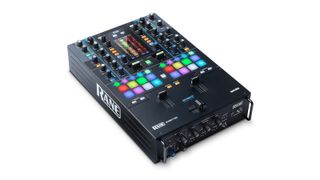
Rane Seventy-Two
Specifications
Reasons to buy
Rane’s two channel mixer does an excellent job of bridging the gap between traditional and digital DJ technology. It’s essentially a combined analogue mixer and controller for Serato DJ Pro, with multiple inputs for ‘real’ decks and CDJs paired with dual USB connections allowing seamless transfer for two Serato DJs.
This mixer is particularly aimed at scratch DJs, with magnetic faders and crossfaders, plus MPC-style performance pads which are ideal for sampling and cue point jumping within Serato. It also features a central touchscreen giving direct access to each Serato deck’s waveform. In all, it’s a very impressive mixer, if rather chunky and not particularly cheap.
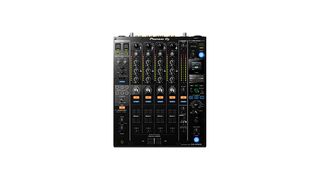
Pioneer DJ DJM-250MK2
Specifications
Reasons to buy
Pioneer DJ are - arguably - the biggest name in professional DJ gear these days. Their CDJs are effectively standard issue for clubs around the world, and while their mixers don’t enjoy quite the same level of ubiquity, their higher-end offers are still a common sight at major clubs and festivals. For beginner DJs, one of the major bonuses of this two channel mixer is that it offers the same look and feel of those pro machines at a more affordable price.
This is more than an entry-level tool though. One major plus point is the fact that it’s rekordbox-compatible and DVS ready, making it a great option for those who want a small ‘two turntable and a mixer’ setup, but like the idea of toying with digital DJing.
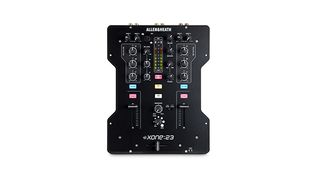
Allen & Heath Xone:23
Specifications
Reasons to buy
A&H’s Xone range represents some of the best DJ mixers around and are the choice of many pro and amateur DJs alike. This simple two-channel model is great as a simple and affordable entry point into that range.
Sound quality is excellent here, and the quality EQs and sweepable central filter are great tools for sculpting tracks. The addition of send/return connections to add external effects is a nice touch at this price point too.
While this is a relatively simple mixer, independent booth outputs and a front panel mic input add enough flexibility for small setups, clubs and events. In all, a rugged, well-designed mixer that offers quality at a reasonable price point.
Get the MusicRadar Newsletter
Want all the hottest music and gear news, reviews, deals, features and more, direct to your inbox? Sign up here.
I'm the Managing Editor of Music Technology at MusicRadar and former Editor-in-Chief of Future Music, Computer Music and Electronic Musician. I've been messing around with music tech in various forms for over two decades. I've also spent the last 10 years forgetting how to play guitar. Find me in the chillout room at raves complaining that it's past my bedtime.
Most Popular










